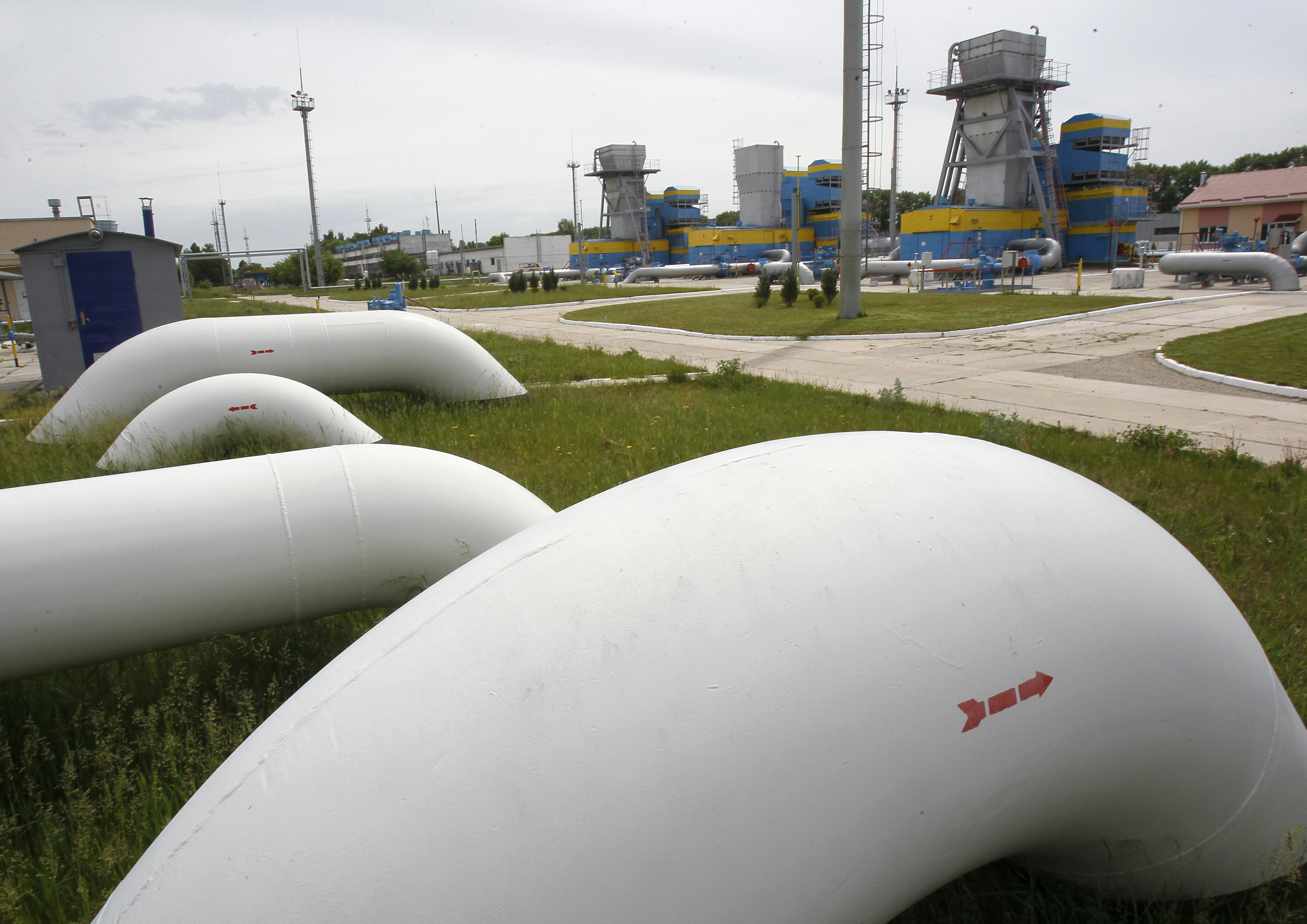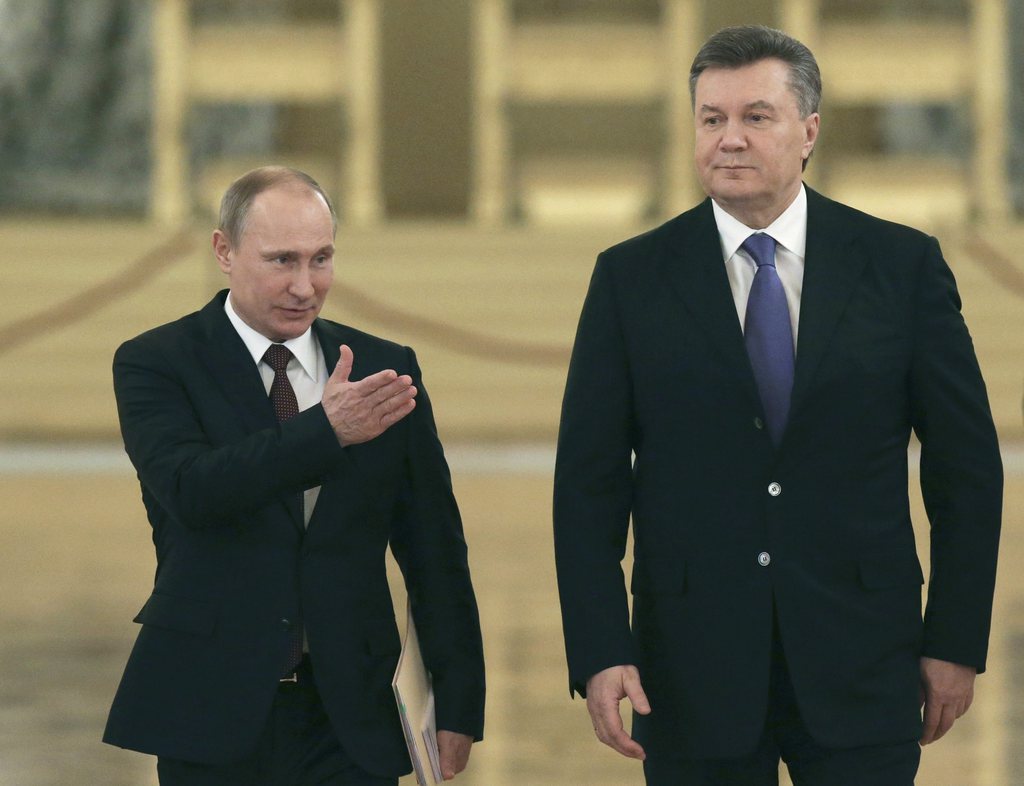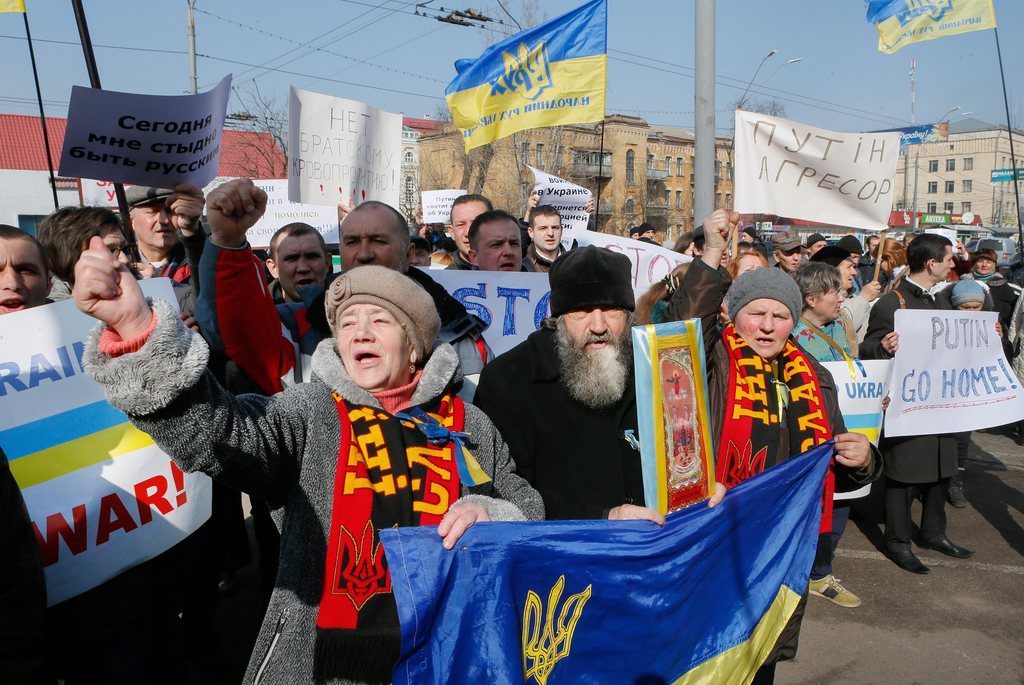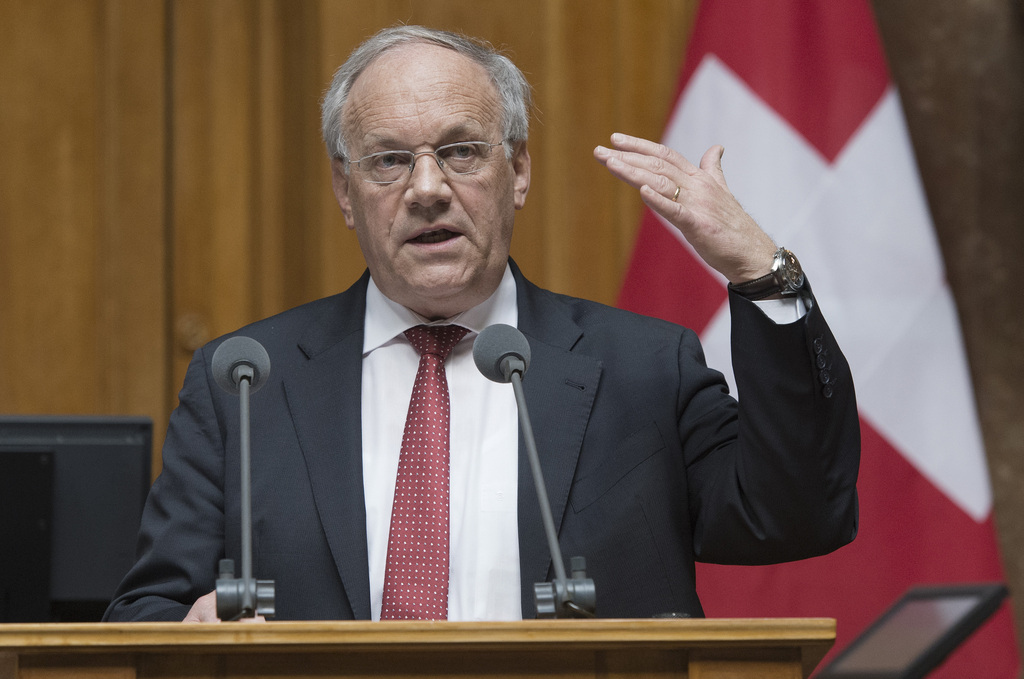Is Europe ready for Russia choking supplies?

Russia has not yet played its gas card to exert additional pressure on Ukraine and in response to Western sanctions over Crimea. But Moscow could be committing “economic suicide” if it were to cut supplies to Europe, according to expert opinion.
With tensions heating up over Russia’s annexation of Crimea, the most likely energy disruption could come from Russia starving Ukraine of gas over unpaid bills, energy specialist Giacomo Luciani told swissinfo.ch.
“Russia has effectively increased the price of its gas to Ukraine by cancelling previously agreed discounts,” the Geneva Graduate Institute of International and Development Studies professor said. “I would not expect Ukraine to pay and that would put Russia into a difficult situation.”
If Russia does cut gas supplies to Ukraine, as it has done twice before (the last time in 2009), then it would have an adverse knock-on effect on European supplies, Luciani added. “That would further damage Russia’s already poor reputation as a reliable supplier of gas,” he said.
“Russia really does not have a great deal of leverage at the moment.”
Since 2009, capacity has been expanded through pipelines outside of Ukraine while several European countries have beefed up storage facilities. In addition, more pipelines are being planned and deals have been struck with other countries to provide short-term supplies of liquified gas.
Fairness key
And a Federal Institute of Technology Zurich (ETHZ) study shows how Europe could mitigate major gas disruptions.
A statistical model provided by the study shows how Europe’s gas needs can be made more resilient to shock by re-routing supplies and reserves through the existing pipeline infrastructure to meet the needs of every country. This would ease the inevitable congestion problems in the event of a major supplier exiting the existing supply system.
According to ETHZ professor Dirk Helbing, who contributed to the report, the plan would need to be backed up by a pan-European political agreement for countries to work together. All it would take after that is for a new software programme and sensors to detect real time gas flows to be added to the existing infrastructure.
“Successfully dealing with disruptions in Russian gas supplies would depend on a fairness mechanism being in place,” Helbing told swissinfo.ch.
“It cannot be left to the market alone to address the problem because the richest countries would just end up with the most resources. That would create a politically explosive situation.”
In Switzerland’s case, 23% of its annual gas supplies come from Russia. A mild winter and a healthy diversification of reliable suppliers (mainly Norway, Germany and Britain) have eased concerns about reliance on Russian gas.
The United States and the European Union have imposed sanctions against Russia following the Crimea referendum on separating from Ukraine.
At the beginning of March both the US and the EU froze assets and imposed travel bans on several key figures said to be close to Russian President Vladimir Putin.
More people were added to the list on March 20 as the Crimea situation intensified. The EU said it could impose broader economic sanctions if violence were to erupt in Crimea or if the situation spills into Ukraine.
One of the people named in the current US sanction list is Gennady Timchenko, co-founder of Geneva-based Gunvor, one of the world’s leading traders of Russian oil and gas.
Timchenko responded to the sanctions by selling his share in the company to fellow co-founder Torbjörn Törnqvist.
The US and the EU have also suspended key talks on closer economic ties with Russia and a planned G8 summit in Sochi, Russia. Instead, US President Barack Obama has invited the other G7 leading nations to talks on Ukraine in Europe.
Switzerland has suspended talks with Russia on a proposed free trade agreement.
“Good news”
The ETHZ model would see Russian gas supplies to Switzerland being replaced on a short-term basis by increases from Norway and the Netherlands.
According to the study, Switzerland would be one of the least affected countries by disruptions as it has a relatively low gas consumption compared to many neighbours and because it already physically funnels north African gas from southern to northern Europe.
“This is good news for Switzerland and highlights its resilience to energy shocks,” said Helbing.
In the long run, Switzerland is following the lead of the EU in further bolstering gas supply lines, according to the Federal Office of Energy.
One project, the Trans-Adriatic Pipeline (TAP), aims have gas pumped from the Caspian Sea to central Europe by 2019.
Switzerland’s direct interest in TAP was downgraded last year when Swiss energy firm Axpo reduced its stake in the project from 42.5% to 5%. However, Axpo remained upbeat about the pipeline despite pulling back last July.
“In opening the southern corridor, TAP will reinforce European and Swiss natural gas supply security, and strengthen Switzerland’s position as a player in the EU gas market,” the company said at the time.

In compliance with the JTI standards
More: SWI swissinfo.ch certified by the Journalism Trust Initiative



You can find an overview of ongoing debates with our journalists here. Please join us!
If you want to start a conversation about a topic raised in this article or want to report factual errors, email us at english@swissinfo.ch.